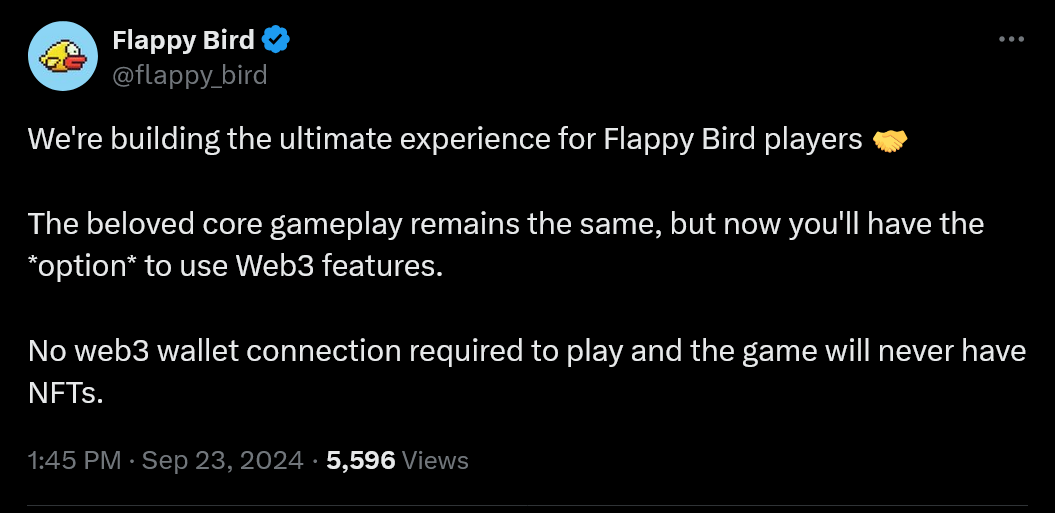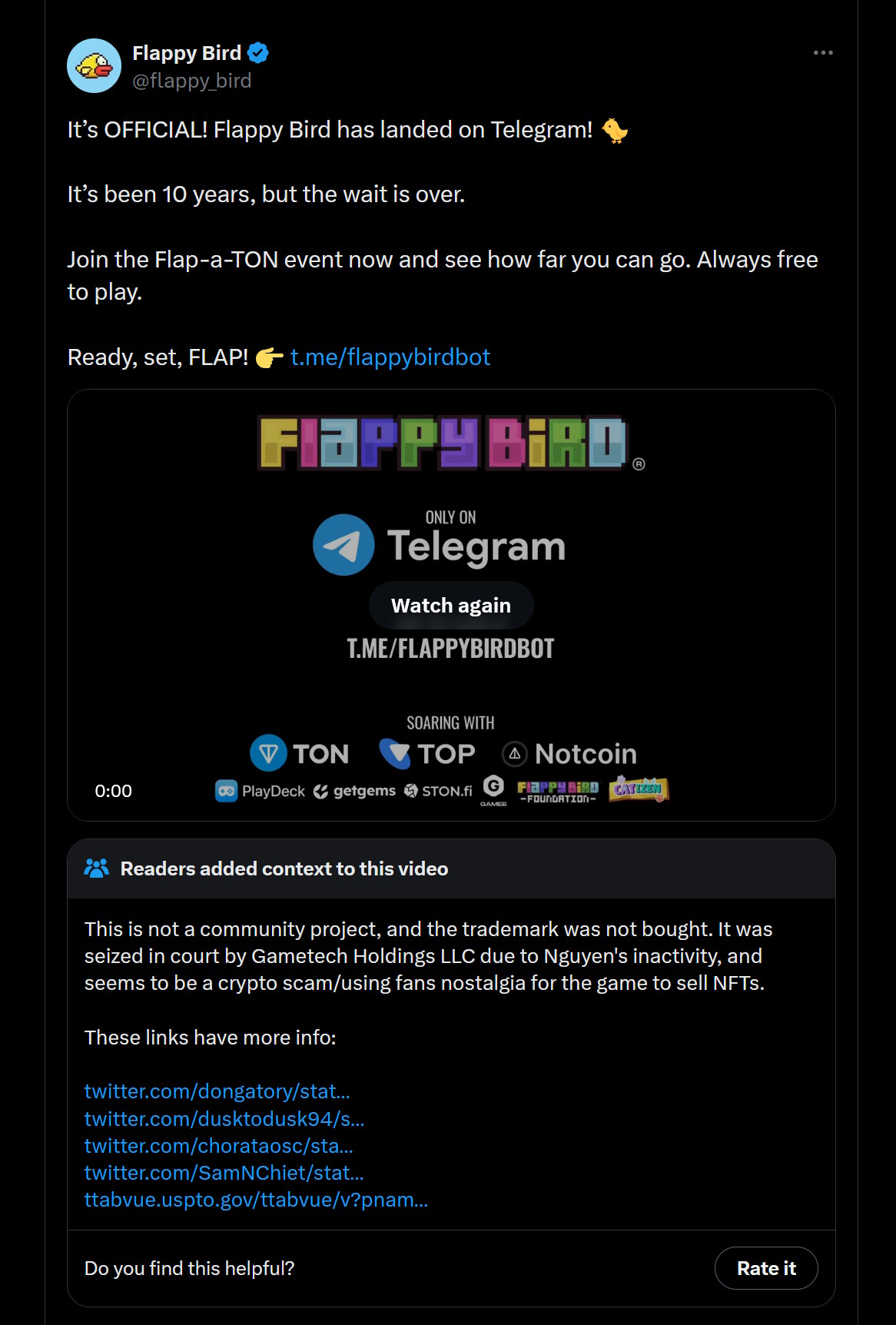The zombie Flappy Bird saga gets weirder: 'The game will never have NFTs' but it does have Web3 features and you can only play it through Telegram, which doesn't seem great
The reborn Flappy Bird debuted last week with a token minting event.
The Flappy Bird comeback announced earlier this month seemed a little unfortunate beneath the surface. "A new team of passionate fans committed to sharing the game with the world" sounds innocuous enough, but there was no overlooking the complete lack of involvement on the part of creator Dong Nguyen, and the group's acquisition of the Flappy Bird trademark had, as senior editor Rich Stanton put it at the time, "a slight whiff of skullduggery": Legally copacetic, but maybe a little dodgy.
Shortly thereafter questions about the resurrected game being an NFT joint floated to the surface, which the Flappy Bird Foundation, as the group is known, did not address in a "clear the air" post on Twitter last week, which focused exclusively on the trademark acquisition. Now it has, sort of, although honestly I'm just more confused than ever: In a new tweet, the Flappy Bird folks say players will "have the option to use Web3 features," but also promises that "the game will never have NFTs."

"Web3" is sort of a catch-all term for an envisioned future of the internet built on blockchain technology, maybe with some sort of cryptocurrency integration. The Harvard Business Review describes it as "a convenient shorthand for the project of rewiring how the web works, using blockchain to change how information is stored, shared, and owned," while the Canadian Web3 Council says it "uses blockchain technology, like the one behind cryptocurrencies, to create a more open and fair internet where users have more control over their data and online activities." So, you get the idea: it's blockchain.
How exactly Flappy Bird will integrate Web3 technology isn't made clear, nor is there any justification for the embrace of blockchain alongside a clear rejection of NFTs. It could be simply that the term NFT is radioactive at this point—despite the best efforts of C-list celebrities and Ubisoft, NFTs are not exactly flying high these days. Regardless, it's a confusing point without clarity from the Flappy Bird Foundation, and thus far that clarity has not been forthcoming.
And while NFTs may be out, cryptocurrency is not. A Web3 wallet may not be required to play but as noted by BlockchainGamer.biz, Flappy Bird relaunched with a "Flap-a-TON" event that enabled players to mint "Flappy tokens" on Telegram's TON (The Open Network) blockchain.

That's quite a community note, eh?
The new Flappy Bird is currently playable exclusively on Telegram, which for me is a red flag all on its own due to the platform's popularity with everything from right-wing extremist groups to illegal pornographers and drug kingpins. Telegram CEO Pavel Durov was arrested by French authorities in August on charges including "complicity in the organized gang distribution of images of minors of a child pornographic nature, drug trafficking, organized gang fraud, criminal conspiracy to commit crimes or misdemeanors," and various other such things.
Keep up to date with the most important stories and the best deals, as picked by the PC Gamer team.
Taken altogether, it's not a great picture: A trademark yoinked away from its original owner, brought back to life with much fanfare and no mention of new crypto foundations, and playable only through a social network that's especially big amongst the Proud Boys and Patriot Front. To be clear, there's no evidence of wrongdoing of any sort, and it may be exactly as presented: Mindless screen-tapping for people who want to make the bird flap, token grinding for those into the crypto scene, and never the twain shall meet. But right now it all feels sort of greasy, a perception that isn't helped by the Flappy Bird Foundation's slow-drip release of incomplete information.
I've reached out to the Flappy Bird Foundation for more information and will update if I receive a reply.

Andy has been gaming on PCs from the very beginning, starting as a youngster with text adventures and primitive action games on a cassette-based TRS80. From there he graduated to the glory days of Sierra Online adventures and Microprose sims, ran a local BBS, learned how to build PCs, and developed a longstanding love of RPGs, immersive sims, and shooters. He began writing videogame news in 2007 for The Escapist and somehow managed to avoid getting fired until 2014, when he joined the storied ranks of PC Gamer. He covers all aspects of the industry, from new game announcements and patch notes to legal disputes, Twitch beefs, esports, and Henry Cavill. Lots of Henry Cavill.


